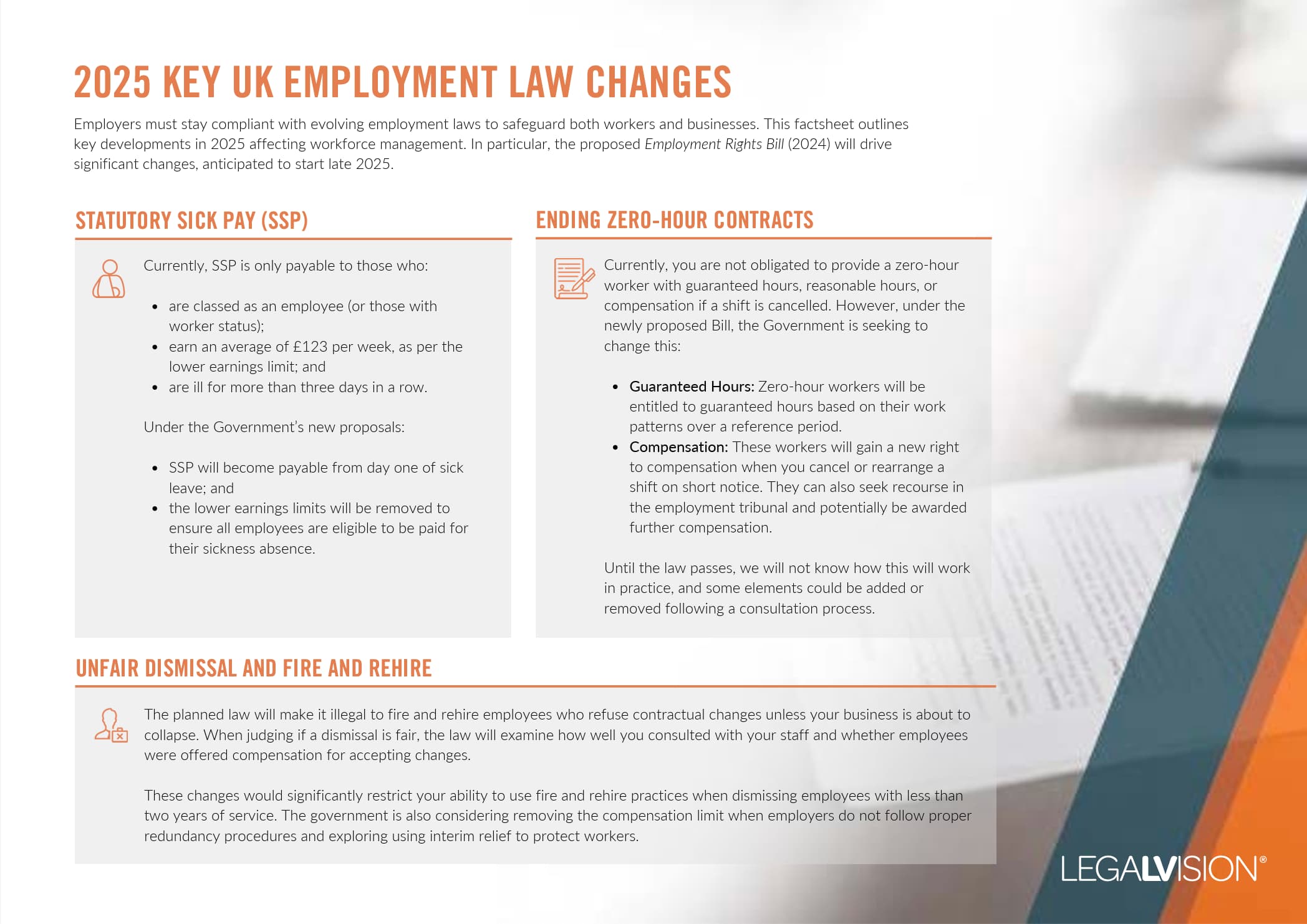When you employ staff in your business, you will form an employment contract with them, usually a written contract. This new contract details the terms and conditions of their employment, including your and your employee’s rights and obligations. However, as business changes, you may decide that you need to incorporate new terms into your contracts, such as changing their work patterns or location. This article explains the legal implications of employees refusing changes to their employment contracts.
Why Might I Change Employment Contracts?
There are many reasons that you, as an employer, may need to change your employees’ contracts. For example, you may be introducing changes to:
- employees’ responsibilities;
- staff working hours;
- salaries; or
- flexible working policies.
Do My Employees Need to Agree to the Change?
If you wish to change your employee’s employment contract, you will usually need their agreement verbally or in writing. You can encourage your employees to agree by examining the changes you want to make and why. You should also ask them for alternative proposals.
It will help if you allow your employees a reasonable amount of time to discuss your proposed changes to their employment contracts. Where you propose changes to 20 or more employees’ contracts, you must consider collective consultation. This is a legal requirement under the Trade Union and Labour Regulations (Consolidation) Act 1992.

This factsheet outlines key developments in 2025 affecting workforce management.
Can My Employees Refuse the Changes?
Your employees have the right to refuse to agree to any changes to their contracts. They may also ask for a trial period to test the changes and see if they are workable. As an employer, you can decide whether or not to agree to a trial period.
If your staff do not agree with the contract changes you have suggested but continue to work under them, they are working ‘under protest’. In this case, your employees must inform you in writing each time they are paid that they disagree with the changes. Your employees may work under protest for a short period of time before bringing legal claims against you.
Even if staff do not take legal action against you, changing contractual terms without their management can lead to poor rapport or industrial action.
What Happens When Employees Agree to a Contractual Change?
If your employees agree to a contractual change, you must:
- update their written statement of employment conditions; and
- inform them of the change within a month.
This applies even if the change is not technically contained in their contracts, such as if it is in the company handbook.
You may dismiss your employees if they disagree with a contract change. However, this is not recommended without legal advice as it could cause a claim of unfair dismissal.
Key Takeaways
You may find that you need to change your employees’ employment contracts, such as to detail a change in their responsibilities. If so, you will usually need to get their agreement, which will involve discussing your proposals and asking them for alternatives. However, your staff are within their right to refuse the changes and continuing with your plans can lead to legal claims such as constructive dismissal. Where employees agree on contractual changes, you should detail these in writing and inform them within one month of their implementation.
If you need help drafting an employment contract variation, our experienced employment lawyers can assist as part of our LegalVision membership. For a low monthly fee, you will have unlimited access to lawyers to answer your questions and draft and review your documents. Call us today on 0808 196 8584 or visit our membership page.
Frequently Asked Questions
As an employer, you will usually need your employees’ agreement before changing their employment contracts.
If you change your employees’ employment contract terms without their agreement, and they continue to work and let you know they are unhappy, this is working ‘under protest’.
We appreciate your feedback – your submission has been successfully received.











